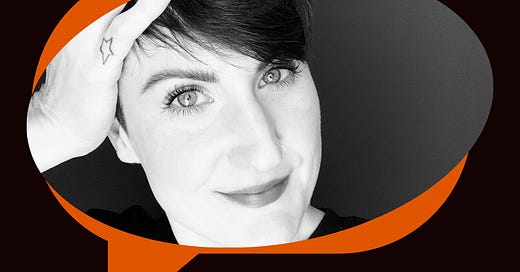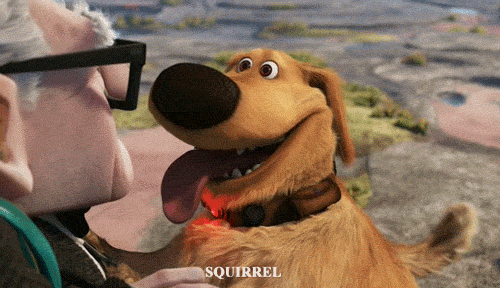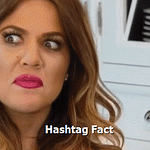ASSUMED AUDIENCE
people curious about how to foster personal, spiritual, or otherwise human identity and communication within the accelerated Anthropocene
Welcome Back to My Squirrel-Brain
Inside my head is a constant tug-of-war between the ever-present “squirrel!” of new ideas and creativities, and the desire to gain some kind of traction on the questions and curiosities of life in the Anthropocene Era. Somehow I need to corral the energy of the dopamine hit I get from discovering new squirrels all the time and channel it into exploring the squirrels I already have.
Also, just a quick reminder that paid subscriptions for this newsletter will begin on July 1. This newsletter is public and free to all, but is sustained by the patronage of those who value the work and have the financial means to support it.
This newsletter is free to read, but if you like this issue and want to leave a tip, you can do so here.
6 Curations for June 2023
I’ve started digging into Hartmut Rosa’s doorstopper Social Acceleration (pray for me, y’all), and now I’m considering All the Things (TM) through the lens of the acceleration of time and technology. Reading Rosa feels like reading Taylor’s A Secular Age: all the shifting pieces have suddenly, finally snicked into place. I told a friend once that it’s like those puzzle box-keys in the movies, where you have to first solve the puzzle to open the box, then you have to solve the puzzle of what the box points toward, then you have to find the lock into which the box-key fits. And the whole time you’re trying to solve the puzzles, you know you have all the pieces in hand, but dammit, what are they all for? But oh, the satisfaction when you finally fit the key into the lock, and the riddle—huzzah!—unlocks itself. That’s what things like this do for me, and that’s why I get so excited to engage them and share with you.
Without further ado, what’s on my eyes, ears, and mind this month.
The Power of Attention in a World of Distraction, The Gray Area with Sean Illing and L. M. Sacasas (podcast)
This podcast hosted by Sean Illing has recently become a favorite. Illing consistently invites interesting guests and provides genuinely thought-provoking questions and conversations.
Narrative Collapse, L. M. Sacasas
“One effect of our digital media environment, then, is to immerse us in searchable databases of information rather than present us with comprehensive, integrated, and broadly compelling narratives.”
Narrative and Database: Natural Symbionts, N. Katherine Hayles
Hayles’ distinction between narrative and database as different species of human technology that nonetheless interact and benefit each other isn’t something I’d thought of before. She brings out the point that databases are practically necessary in the twenty-first century, but that narratives (one of the oldest “human technologies”) help us make sense and meaning out of the disparate collections of data.
Human Communication as Narration: Toward a Philosophy of Reason, Value, and Action, Walter Fisher
I first read Fisher’s book in grad school, and it’s one of those that just fits in with everything else, at least for me. Fisher’s basic thesis is that storytelling is one of the first skills that we develop as we mature, and it’s really the basis for all of our decision making and communication. Rather than conceiving of ourselves as thinking beings (homo sapiens), Fisher asks us to consider ourselves as homo narrans: storytelling beings.
5 Myths Fast Fashion Brands Want You to Believe, Justine Leconte (video + playlist)
Acceleration affects everything, even our clothes. A few years ago, I was at the mall and I found myself in the middle of H&M having a moral and ethical meltdown looking for a sweater because I’d just started learning about “fast fashion” and really hated the thought of putting more money toward these companies that exploit humans and material resources across the globe.
I think that, of all the things we feel helpless to address or affect, making a change in how we buy clothing might actually be something we could do—and make a difference. The rise of “fast fashion” means we have new designs produced every day. The sheer amount of waste that gets dumped into landfills of new, unpurchased clothing is mind-boggling. And sickening.
I share this to encourage us to pause and consider the hidden costs of what, to us, is a “cheap” sweater or pants or dress. If we have the ability to wait, save funds, and do some research, it might be worth it to invest in better, more sustainably made clothing from companies that fairly compensate workers and don’t strip-mine local environments. I’m nowhere near 100% compliant with this practical adjustment, but I’m trying. And if you have any suggestions for sustainable clothing brands, let me know!
Renovating a New Orleans Home from the Civil War Era - Architectural Digest (video)
There are few things I love more than listening to someone who speaks with knowledge, skill, and passion about their chosen area of focus or expertise. Listening to Anna Karp go through this house was 18 minutes of sheer delight.
2 Videos
This month, I’m sharing two videos over on my YouTube channel, which, by the way, you should totally subscribe!
How to Reflect on Your Relationships with a Relationship Index - coming on June 20
The Lift Index and the Relationship Index are techniques for relating to the past, for compiling a narrative of how we came to be who we are in this moment. By remembering the experiences that led us to develop skills, obtain opportunities, and build relationships, we can begin to identify the narrative, the story of our lives. We might also begin to discern the goal of our lives, the purpose or future toward which we want to move.
Mostly, I hope these techniques help us pause to tune a signal from the noise of the increasing scale, pace, and decontextualization of information. In doing so, maybe we can listen to our lives in a way that helps us discern the significance of those experiences and relationships to connect with who we want to be.
Questions for Future Exploration
One of the longstanding preoccupations of my life might best be summed up in asking, “How do I become the person I want (or am called or made) to be?” In the Christian tradition, this process is called spiritual or personal formation. In contemporary terms, it might be called self-help, personal growth, or professional/personal development.
But defining the person one wishes to become involves all kinds of attendant questions: of the good life, what it is, how to live it, and, of course, what this goal and its pursuit does to our sense of self and being and identity. So, not a simple preoccupation by any means.
The writers and thinkers I’ve read and listened to this month have prompted a whole slew of questions (on top of questions I’ve already been pondering).
What does the perception of “going nowhere fast” do to our sense of self and purpose?
What difference does it make if we frame our perceptions or identities in relation to the Database versus the Narrative?
How did authenticity come to be the defining goal of late modernity?
Why does the pursuit of authenticity and an authentic self feel like a constant process of customization?
What do we do with this collective impulse toward nostalgia?
What is the connection between satisfying or useful work and selfhood or identity? (Is there a connection?)
What if the problem is not “capitalism,” per se, but capitalism under acceleration? If acceleration affects everything, does it push systems like capitalism to unsustainable extremes?
I’d love to know what questions come up for you as you navigate your own life - leave a comment below or reply to this email!
Let’s be hopeful, creative, and wise—together.
Shalom,
Megan.














Share this post